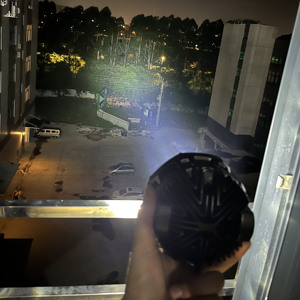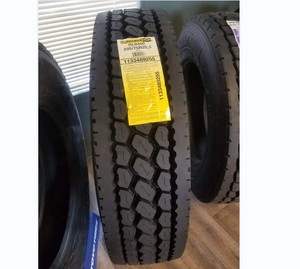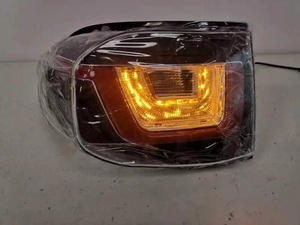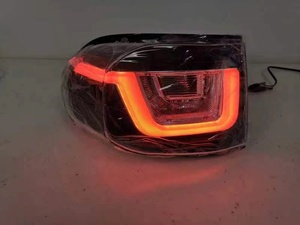Types of FJ Cruiser LED Lights
There are numerous types of FJ cruiser LED lights available in the market today, each designed for specific purposes and driving conditions.
FJ Cruiser LED Headlights
LED headlights for the FJ Cruiser are engineered to enhance illumination, providing safer nighttime driving experiences. These lights offer:
- Superior Brightness: Up to 300% brighter than traditional halogen bulbs
- Whiter Light: Produces a crisp, white beam that improves visibility and reduces eye strain
- Exceptional Longevity: Lasting up to 25,000 hours or more, significantly reducing replacement frequency
- Energy Efficiency: Consumes approximately 70% less power than standard bulbs, reducing strain on the vehicle's electrical system
- Modern Aesthetic: Provides a sleek, contemporary appearance that enhances the vehicle's look
Safety Enhancement: The improved visibility offered by LED headlights can significantly reduce nighttime driving accidents.
FJ Cruiser LED Fog Lights
Specifically designed to improve visibility in adverse weather conditions, LED fog lights for the FJ Cruiser feature:
- Strategic Beam Pattern: Creates a wide, flat beam that cuts through fog, rain, or snow
- Low Mounting Position: Allows the beam to travel beneath fog or mist layers for clearer vision
- Weather Resistance: Built with durable materials to withstand exposure to moisture and elements
- Color Temperature Options: Available in yellow (3000K) for optimal fog penetration or white (6000K) for matching headlights
- Easy Installation: Often designed as direct replacements for factory fog lights
Professional Tip: Yellow fog lights (3000K) offer the best penetration through fog and precipitation.
FJ Cruiser LED Light Bar
An exceptional addition for off-road enthusiasts, FJ Cruiser LED light bars provide:
- Massive Light Output: Typically ranging from 5,000 to 50,000+ lumens depending on size
- Versatile Beam Patterns: Available in spot, flood, or combination patterns for different driving needs
- Mounting Options: Can be installed on roof racks, bumpers, or grille for customized positioning
- Rugged Construction: Built to withstand extreme temperatures, humidity, vibration, and shock
- Customizable Orientation: Adjustable brackets allow for precise aiming to match driver needs
Application Note: While extremely useful for off-road driving, light bars should be covered or turned off when driving on public roads to avoid blinding other drivers.
FJ Cruiser LED Rock Lights
Perfect for serious off-roaders, LED rock lights for the FJ Cruiser offer:
- Underbody Illumination: Lights up the terrain immediately surrounding the vehicle
- Obstacle Visibility: Reveals rocks, holes, and terrain features that would otherwise be hidden in shadows
- Customizable Colors: Many systems offer RGB options for personalized appearance
- Wireless Control: Premium systems include smartphone apps for changing colors and patterns
- Weatherproof Design: Built to IP67 or IP68 standards to withstand submersion and debris
Dual Purpose: Rock lights serve both functional and aesthetic purposes, improving off-road safety while creating a distinctive look.
Expert Advice: When upgrading multiple LED lighting systems on your FJ Cruiser, consider installing a secondary battery or higher output alternator to handle the additional power demands during extended use.
Specifications and Technical Details
Understanding the technical specifications of FJ Cruiser LED lights is crucial for selecting the right product for your specific needs and ensuring optimal performance.
Voltage
FJ Cruiser LED lights typically operate at 12 volts DC, matching the vehicle's electrical system. However, they're designed with built-in drivers that allow them to function efficiently even with voltage fluctuations between 9V-16V.
Standard: 12V DC
Operating Range: 9V-16V
Power Consumption
One of the major advantages of LED lights is their energy efficiency. Compared to traditional halogen bulbs, they draw significantly less power while producing more light.
Headlights: 20-40W per pair
Fog Lights: 10-30W per pair
Light Bars: 18-300W depending on size
Rock Lights: 2-5W per light
Lumens Output
Lumens measure the total amount of visible light emitted. Higher lumen values indicate brighter light output.
Headlights: 2,000-4,000 lumens per pair
Fog Lights: 1,000-2,000 lumens per pair
Light Bars: 5,000-50,000+ lumens
Rock Lights: 200-500 lumens per light
Color Temperature
Measured in Kelvin (K), color temperature determines the light's appearance from warm (yellowish) to cool (bluish-white).
Warm White: 3000K (yellowish)
Neutral White: 4000-5000K
Cool White: 6000-6500K (daylight appearance)
Ultra Blue: 8000K+ (less practical, more aesthetic)
Beam Angle
The beam angle determines how widely the light spreads from the source.
Spot Beam: 30° (long-distance visibility)
Flood Beam: 60°-120° (wide area coverage)
Combo Beam: Combines spot and flood patterns
Driving Beam: 45°-60° (balanced pattern)
Housing Material
The housing protects the LED chips and electrical components while assisting with heat dissipation.
Aluminum: Excellent heat dissipation, corrosion-resistant
Polycarbonate: Impact-resistant, lightweight
ABS Plastic: UV-resistant, affordable
Die-cast Housing: Premium durability and heat management
Lens Material
The lens protects the LEDs while allowing maximum light transmission.
Polycarbonate: Shatter-resistant, affordable
PMMA Acrylic: Excellent clarity, UV-resistant
Tempered Glass: Superior clarity, scratch-resistant
PC Lens with Coating: Anti-fog, anti-scratch options
Waterproof Rating
IP (Ingress Protection) ratings indicate resistance to water and dust penetration.
IP65: Protected against dust and water jets
IP67: Dust-tight and protected against temporary immersion
IP68: Dust-tight and protected against prolonged immersion
IP69K: Protection against high-pressure, high-temperature wash
Maintenance of FJ Cruiser LED Lights
Proper maintenance is essential to maximize the lifespan and performance of your FJ Cruiser LED lights. Follow these professional maintenance tips:
-
Regular Cleaning
Dirt, dust, mud, and road grime can significantly reduce light output by up to 40%. Clean your LED lights regularly using automotive-grade cleaner or mild soap with water. Avoid harsh chemicals that could damage the lens coating. Use a microfiber cloth to prevent scratching, and ensure lights are cool before cleaning.
-
Inspect for Functionality Issues
Periodically check all LED lights for proper operation. Look for decreased brightness, flickering, or partial illumination, which may indicate loose connections or moisture intrusion. Check wiring harnesses for wear, cracks, or exposed wires that could cause short circuits. Test all lights monthly, especially before off-road trips.
-
Prevent Moisture Buildup
Moisture infiltration is a common cause of LED light failure. Inspect seals and gaskets for deterioration or damage. If condensation appears inside the housing, check and reseal the perimeter with silicone sealant designed for automotive applications. Consider using desiccant packs inside the housing for locations with high humidity.
-
Protect from Extreme Temperatures
While LEDs are more temperature-resistant than traditional bulbs, extreme heat can degrade components over time. When possible, park in shaded areas during hot weather. In freezing conditions, allow lights to warm up gradually. Ensure heat sinks on high-powered LEDs are clean and unobstructed for proper heat dissipation.
-
Monitor Light Output Over Time
LED lights naturally experience lumen depreciation over their lifespan. While rated for 30,000-50,000 hours, significant brightness reduction may occur before complete failure. Consider replacement when output decreases by 30% or more from original brightness. Keep track of installation dates to anticipate replacement intervals.
Professional Tip: Apply a UV-resistant clear coat or specialized headlight sealant to your LED light lenses annually. This helps prevent yellowing, oxidation, and micro-scratches that can reduce light output and aesthetics.
How to Choose FJ Cruiser LED Lights
Selecting the ideal LED lighting solutions for your FJ Cruiser requires careful consideration of several key factors to ensure you get the best performance for your specific needs.
Purpose & Application
Different driving scenarios demand different lighting solutions:
- Daily Driving: Focus on DOT-compliant headlights and fog lights with proper beam patterns
- Off-Road Trails: Consider light bars and auxiliary lights with combination beam patterns
- Rock Crawling: Prioritize rock lights and underbody illumination
- Overland/Camping: Look for scene lights and area illumination options
Quality & Durability
The FJ Cruiser's adventurous nature demands robust lighting:
- Construction Quality: Premium aluminum housing with proper heat sinks
- Weatherproofing: Minimum IP67 rating for serious off-road use
- Vibration Resistance: Military-grade or automotive-specific shock resistance
- Warranty Period: Look for 2+ year warranties as indicators of quality
Brightness & Visibility
Effective illumination depends on more than just raw lumen output:
- Lumen Efficiency: Higher quality LEDs produce more usable light per watt
- Beam Pattern: Properly focused beams are more effective than scattered light
- Color Temperature: 5000K-6500K provides optimal visibility in most conditions
- Reflector Design: High-quality reflectors maximize light projection
Installation Complexity
Consider your comfort level with vehicle modifications:
- Plug-and-Play: Direct replacement lights require minimal technical skills
- Wiring Harnesses: Quality harnesses with relays protect vehicle electrical systems
- Mounting Requirements: Some installations may require drilling or bracket fabrication
- Professional Help: Complex systems might justify professional installation
Compatibility
Ensure your lighting solutions integrate properly with your vehicle:
- Vehicle-Specific Fitment: Look for lights designed specifically for the FJ Cruiser
- CANBUS Compatibility: Some vehicles require CANBUS-ready LEDs to prevent error codes
- Power Draw: Ensure your alternator can handle the additional electrical load
- Control Integration: Consider how the lights will be switched and controlled
Price vs. Value
Balance cost considerations with performance needs:
- Budget Range: Quality headlight replacements ($150-$500), light bars ($100-$1000+)
- Long-term Value: Higher initial cost often means better durability and performance
- Package Deals: Complete kits may offer better value than individual components
- Hidden Costs: Account for mounting hardware, wiring, and potential installation
Brand Reputation
Established brands often provide better support and reliability:
- Market Presence: Companies with long track records typically offer better support
- Customer Reviews: Check forums and reviews from other FJ Cruiser owners
- Warranty Support: Verify the warranty process and company responsiveness
- Industry Certifications: Look for DOT, SAE, or ECE compliance for on-road lights
DIY Installation Guide
Replacing your FJ Cruiser's LED lights can be a rewarding DIY project that enhances both functionality and appearance. Follow this comprehensive guide for a successful installation.
Required Tools and Materials
- New LED light bulbs or assemblies (compatible with your FJ Cruiser model year)
- Screwdriver set (Phillips and flathead)
- Socket wrench set (10mm is commonly needed)
- Pliers (standard and needle-nose)
- Wire cutters/strippers (for wiring modifications if needed)
- Electrical tape and zip ties (for securing wiring)
- Dielectric grease (to protect electrical connections)
- Clean microfiber cloth (for handling new bulbs without contamination)
- Anti-seize compound (for mounting hardware in harsh environments)
- Multimeter (to test connections and troubleshoot)
Step-by-Step Installation Process
-
Prepare Your Vehicle
Turn off the vehicle completely and disconnect the negative terminal of the battery to prevent electrical shorts. Ensure the engine is cool if working near it. Park on a level surface with emergency brake engaged.
-
Access Light Assembly
For headlights, open the hood and locate the back of the headlight housing. For fog lights, you may need to access them from underneath or remove the bumper cover (consult your service manual). For light bars, identify your chosen mounting location.
-
Remove Existing Lights
For bulb replacements, twist the existing bulb socket counterclockwise to release it. For full assemblies, remove the mounting screws or clips holding the unit in place. Keep track of all hardware and their locations.
-
Disconnect Electrical Connections
Carefully unplug the electrical connector from the old light. Note the orientation and connection method. Some connectors have release tabs that must be pressed before disconnecting.
-
Prepare New LED Light
Remove the new LED light from packaging. Avoid touching the LED bulb surface with bare fingers as oils can damage the bulb. If included, attach any necessary adapters or heat sinks to the new LED light.
-
Connect New LED Light
Connect the electrical harness to the new LED light. Apply a small amount of dielectric grease to the connector to prevent corrosion. Ensure connections are secure and properly oriented.
-
Install LED Light
Place the new LED light into position. For bulbs, insert and twist clockwise to lock. For assemblies, secure with original mounting hardware. Ensure the light is properly seated and aligned.
-
Secure Wiring
Route any excess wiring away from hot engine components or moving parts. Use zip ties to secure wiring harnesses. For light bars or auxiliary lights, follow a clean path to your switch location.
-
Test Function Before Finalizing
Reconnect the battery and test the lights before fully reassembling. Check for proper illumination, flashing, or error codes. If everything works correctly, disconnect the battery again to complete installation.
-
Complete Installation
Replace any covers or panels removed during installation. Double-check all connections and mounting hardware for tightness. Reconnect the battery and perform a final test of all lighting systems.
Installation Tip: For headlight replacements, consider adjusting the beam pattern after installation. Park 25 feet from a wall at night and adjust the headlight aim screws until the beam pattern is level and properly aligned to prevent blinding oncoming traffic.
Frequently Asked Questions
Compatibility can be confirmed through several methods:
- Check the manufacturer's product description for specific FJ Cruiser model year compatibility
- Look for "direct fit" or "plug and play" designations for your specific model year
- Verify the connector type matches your vehicle's existing wiring
- Review the product manual or installation guide before purchase
- Consult FJ Cruiser owner forums for real-world compatibility experiences
For headlights, also verify if your vehicle has a CANBUS system, as some LED replacements require CANBUS-compatible bulbs to prevent error messages.
Low beam and high beam LED lights differ in several important ways:
- Light Pattern: Low beams produce a wide, flat-topped beam pattern that illuminates the road without blinding oncoming drivers. High beams create a concentrated, long-distance beam for maximum visibility on open roads.
- Distance Coverage: Low beams typically illuminate 200-300 feet ahead, while high beams can reach 350-500+ feet.
- Light Distribution: Low beams are asymmetrical, directing more light toward the road's right side (in right-hand drive countries). High beams distribute light symmetrically for maximum forward visibility.
- Usage: Low beams are for regular driving in traffic, while high beams are for unlit rural roads or highways without oncoming traffic.
Some premium LED headlight assemblies include both low and high beam functions in a single unit with advanced projector technology.
FJ Cruiser LED fog lights are specially engineered lighting solutions designed to enhance visibility in challenging weather conditions such as:
- Fog and Mist: The wide, flat beam pattern with sharp cutoff penetrates fog without creating glare reflection
- Heavy Rain: The lower mounting position reduces water droplet reflection that can blind the driver
- Snow and Dust: The specialized beam pattern helps illuminate the road surface without excessive reflection from airborne particles
- Coastal Driving: Effective in marine layer conditions common in coastal areas
Quality LED fog lights often feature selective yellow color options (3000K), which provide better contrast in foggy conditions than white light. They're mounted low on the vehicle to project light underneath the fog layer where visibility is better.
Yes, FJ Cruiser LED lights offer excellent customization and upgrade options:
- Brightness Upgrades: Most standard LED systems can be upgraded to higher-output options with increased lumen ratings
- Color Customization: Many aftermarket options offer selectable color temperatures from 3000K (yellow) to 8000K (cool blue)
- RGB Systems: Advanced rock lights and accent lighting can feature full RGB color changing capability with smartphone control
- Beam Pattern Options: Upgraded LED headlights can feature projector lenses with sharper cutoffs and improved beam distribution
- Modular Systems: Some light bar setups allow for adding additional pods or sections to increase coverage
When upgrading to significantly brighter options, consider installing a wiring harness with relays to protect your vehicle's electrical system and ensure proper power delivery to the lights.
LED light legality for road use varies by jurisdiction, but generally follows these principles:
- Headlights and Taillights: Must be DOT/SAE compliant (in the US) or ECE compliant (in Europe) to be street legal
- Fog Lights: Generally legal if properly aimed and used according to local regulations
- Light Bars: Typically not legal for on-road use in most jurisdictions; must be covered or turned off on public roads
- Rock Lights: Restrictions vary; many areas prohibit colored lights (other than amber or white) visible from the front of the vehicle
- Interior Lighting: Generally permitted as long as it doesn't distract the driver
Always check your local regulations regarding aftermarket lighting modifications, as rules vary significantly between jurisdictions. Many LED lighting products are marketed as "off-road use only" and may not comply with street-legal requirements.





































































































































































































































































 浙公网安备 33010002000092号
浙公网安备 33010002000092号 浙B2-20120091-4
浙B2-20120091-4